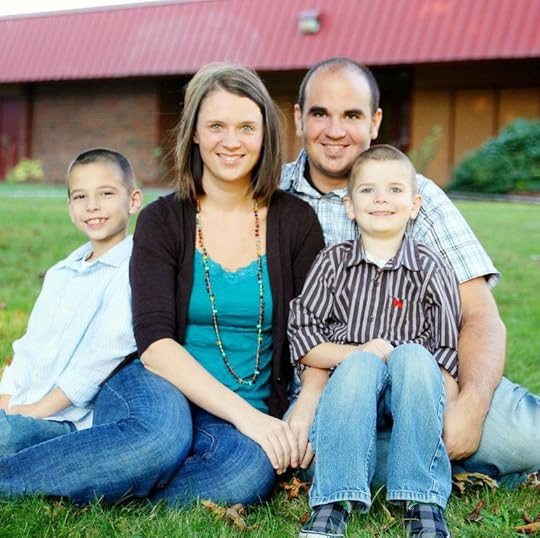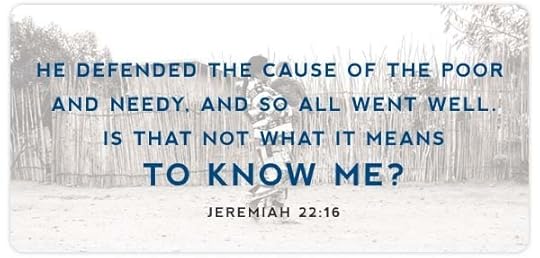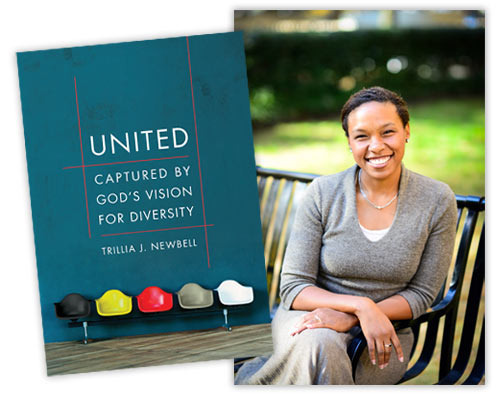Randy Alcorn's Blog, page 183
March 19, 2014
The Seed Company: Reaching 1,000 Languages with God’s Word
 The Seed Company is one of the best Bible translation organizations, and the one most heavily supported by EPM. This year, they’re celebrating the beginning of their 1,000th language translation. Cumulatively these translations have helped to bring God’s Word to more than a billion people! There are still approximately 2,000 languages that need the Bible, but The Seed Company believes that by 2023, Bible translation could be underway for virtually every people group, in their own language.
The Seed Company is one of the best Bible translation organizations, and the one most heavily supported by EPM. This year, they’re celebrating the beginning of their 1,000th language translation. Cumulatively these translations have helped to bring God’s Word to more than a billion people! There are still approximately 2,000 languages that need the Bible, but The Seed Company believes that by 2023, Bible translation could be underway for virtually every people group, in their own language.
A distinctive of this ministry is that they partner with national and indigenous believers to help them do their own Bible translation. "How Does Translation Work?” is a fun-to-watch 6-minute video that will give you some great insight into the process:
What a privilege to participate in getting God’s Word to people. Giving to The Seed Company is truly making an investment in eternity. Those of us who know Christ will celebrate the fruits of this ministry throughout the ages to come, when we meet and develop friendships with people of every tribe, nation and language, some of the very people who received the Word of God because of our giving and our prayers. What could be better than that? What could bring greater happiness?

Each blog regularly appears on my Facebook page where people often comment on it. If you’d like to comment or see others’ comments, we invite you to join us there.
March 17, 2014
Some Wise Words about Facebook
 Like many readers I spend some time on Facebook—enough to have seen it at its best and worst. It isn’t a big part of my life, but when kept in its place, it can be good and healthy. If I didn’t think that, I wouldn’t have a Facebook page, and I wouldn’t ever look at anyone else’s.
Like many readers I spend some time on Facebook—enough to have seen it at its best and worst. It isn’t a big part of my life, but when kept in its place, it can be good and healthy. If I didn’t think that, I wouldn’t have a Facebook page, and I wouldn’t ever look at anyone else’s.
However, like nearly every good thing, Facebook can become a source of temptation and can both express and feed a critical spirit. Our daughter Angela Stump is women’s ministry director at nearby Gresham Bible Church, a Christ-centered Bible-teaching fellowship I HIGHLY recommend. (Here’s a picture of her and her husband Dan and sons Jake and Ty.) Ang recently sent this note to the women of her church. It applies as much to men as women. And it also applies to other social media besides Facebook. I encourage you to listen to Angela, who is one of the wisest young women I know.
I, maybe like some of you, have a serious love/hate relationship with Facebook. I love to reconnect with old friends, to keep up relationships with people who live far away, and to see worlds collide when someone from my work is friends with someone I went to high school with. Love it!
And then I hate it. Sometimes I see people, often not realizing it, post something that really rubs me the wrong way. Should I comment or keep my mouth shut? I also hate it because checking it "for a few minutes" often turns into 45 minutes...or more. And I hate it because sometimes I see all the wonderful things people are doing and feel like a failure.
Over the last few months I've heard from a whole lot of women who have various struggles with Facebook. I just wanted to share a few thoughts to encourage and challenge each of us (yes, I'm preaching to myself, too!) Oh, and these points don't just apply to Facebook, but to real life friendships too.
First, when you post something on Facebook, please check your motives. Always ask yourself, "Why am I posting this?" Are you posting something for the sole purpose of getting comments to boost your ego or to have people add fuel to a fiery rant you're getting off your chest? I think it's fine to want to share a cute picture, or even be honest about a struggle you're having. As long as you're not doing it just to get a pat on the back, or to give the impression that you have a perfect life, or to seek encouragement for a poor attitude.
Secondly, when you post on Facebook, please remember your audience. Not everyone is single, or married, or has kids. Not everyone who IS single is either A. desperately looking for a man, or B. not praying hard enough for one. Not everyone who IS married is living happily ever after. Not everyone who HAS children is loving being a mom every second of the day. Not every woman works, and not every woman stays at home. Not everyone has money to go out to dinner every week...or at all. Not everyone who has money spends it in the same way that you do. Not everyone loves Jesus. And this one is huge: Not everyone who loves Jesus is at the same place in their spiritual walk as you are. Be sensitive. Be gracious. Be kind. Be an example to those who don't love Jesus, or who are really struggling with their faith.
Thirdly, choose to believe the best about people. Believe that the mom being honest about the difficulties of raising kids isn't trying to hurt the women desperately trying to get pregnant, or who have just miscarried. Also remember that you don't know the story behind every post. The brand new car might have been a gift, not an unwise financial decision. The woman posting about her "awesome husband" might be praising the one positive quality she can think of because she's fighting to save her marriage.
Fourth: PLEASE don't compare. Just because so and so is doing such and such doesn't mean that you're a failure if you're not doing the same thing. God has a unique plan for each of us and has given us different gifts and abilities. We're not all the same, nor should we be! And on the other end of the spectrum, just because someone is (or isn't) doing something doesn't mean you're better than they are. Remember the log and the speck? Be careful not to judge others before you've examined yourself!
This last one is really convicting to me personally. Be happy for each other. When someone talks about buying a new house, or celebrating an anniversary in the tropics, or the fun girls' weekend they just had, whether or not it's your first reaction, make a conscious thought to be excited for them. Satan wants us to be focused on ourselves, but God wants us to love others more than ourselves. If a sister has a moment of delight, rejoice with her! Just as we should bear each other’s' burdens, we should share in each other’s joys.
It really all comes down to giving each other grace because of the grace that we have received in Christ. It's about loving others because of the love the Father gives to us. It's about living out the gospel, and putting Jesus on display in everything we do.
If you feel like you're having trouble with one or more of these, I encourage you to take a Facebook break for a while, even if it's just for a day or two. It's amazing how Satan can use a seemingly innocent thing like Facebook to hold us back from growing in our relationships with God and with each other.
Praying that we all will represent God well to our fellow sisters in Christ, our families, our friends outside of the church...and even Facebook.
Ang Stump

Related Resources
Blog: Living Life or Documenting Insignificance?
Blog: Facebook and Twitter: Are They Worth It?
March 14, 2014
What should our perspective be on growing older?
 Someone asked, Many people—both young and old—dread aging. What should our perspective be on growing older?
Someone asked, Many people—both young and old—dread aging. What should our perspective be on growing older?
First, realize that fifty isn’t old, neither is sixty. Seventy and eighty don’t have to be old either. Your mindset is much more important than your age. But if God keeps you here long enough to really get old, then be grateful you’ve lived so long! And determine to enjoy every day, month, and year that God gives you. Remember, if He didn’t have a purpose for you here, you wouldn’t be here.
Most societies venerate the elderly. Think of the experience and wisdom the older person has gained in all his or her years of life. They have so much to offer others. I love to be around older people—that is, older people who have sweetened with age, not those who have soured. Choose which you’d rather be.
As you grow older, you can be one of those godly old saints people love to be around. The more you’ve walked with the Lord the more you’ll have to offer your children, grandchildren, great grandchildren, friends, neighbors, and church family.
No matter your age, remember that who you are is rooted in Christ and who He has made you, not in your outward appearance or performance. Rehearse the fact that the most important part of your life is the part that only God sees. His deepest concern is about the inner you. True beauty is inner beauty, and it does not diminish but deepens as you grow older and your friendship with Him develops.
I won’t pretend that growing old is easy. It isn’t. But there is still something beautiful about it for the Christian. There are always people to share your life with—people to help and people to help you. And with you is your God, who knew you before birth and will take you through death to the glory of His presence. Robert Browning’s words can be applied to our relationships with our loved ones and with God:
Grow old with me; The best is yet to be.
The last of life, For which the first was made.
And in fact, for believers, more accurate poetic lines would be,
The best is yet to be,
The next of lives, For which the first was made.
The last of our life before we die is in fact not the last of our life! We’ll go right on living in another place. And one day, in the resurrection, we’ll live again on Earth, a life so rich and joyful that this life will seem impoverished in comparison. Millions of years from now we’ll still be young.
In our society many people look to cosmetic surgeries, implants, and other methods to remodel and renovate their crumbling bodies. We hold to youthfulness with a white-knuckled grip. Ultimately it’s all in vain. But the gospel promises us eternal youthfulness, health, beauty, and happiness in the presence of our God and our spiritual family. It’s not ours now—but it will be, in the resurrection of the dead.

This article also appeared in the Spring 2014 issue of Eternal Perspectives magazine. You can read the magazine online for free.
This issue includes:
Genuine Grace, Unedited Truth by Randy Alcorn
Never Stop Being a Student by Paul David Tripp
Kinder than Kind by Jerry Jenkins
...and more.
March 12, 2014
God Rejoices to Do Us Good
 In researching and writing on the topic of happiness, one of the verses I've enjoyed mediating on is Jeremiah 32:40, 41, where God says, "I will make with them an everlasting covenant that I will not turn away from doing good to them ... I will rejoice in doing good to them.”
In researching and writing on the topic of happiness, one of the verses I've enjoyed mediating on is Jeremiah 32:40, 41, where God says, "I will make with them an everlasting covenant that I will not turn away from doing good to them ... I will rejoice in doing good to them.”
Here we see the joyful enthusiasm of God in keeping all His promises. Imagine the warmth and gladness in your heart as you do something special for your child or grandchild—now magnify that many times to begin to appreciate the love and happiness of God’s heart toward us.
Writing about these verses, John Piper says,
This is one of those promises of God that I come back to again and again when I get discouraged (yes, that happens to pastors). Can you think of any fact more encouraging than that God rejoices to do you good? He doesn't begrudgingly fulfill His promise (Romans 8:28). It is His joy to do you good. And not just sometimes. Always! "I will not turn away from doing good to them."
But sometimes our situation is so hard to bear we just can't muster any joy. When that happens to me I try to imitate Abraham: "In hope he believed against hope" (Romans 4:18). God has always been faithful to guard that little spark of faith for me and eventually (not right away) to fan it into a flame of happiness and full confidence.
O how glad I am that the thing that makes Almighty God happiest is doing good for you and me!
Article from DesiringGod.org .

photo credit: Philerooski via photopin cc
March 10, 2014
Five Things We Miss If We Don’t Give, Especially to the Needy

If we don’t reach out in our giving, as individuals and as churches, we miss out on a central aspect of biblical teaching: God’s deep concern for the poor and needy. It was said of King Josiah, “He defended the cause of the poor and needy, and so all went well. Is that not what it means to know me?” (Jeremiah 22:16).
When we choose not to give, we miss out on several things:
1. Christlikeness
Christ is the ultimate giver (2 Corinthians 8:9). “Grace” is giving, and Jesus was full of grace and truth. Giving is an expression of his basic nature. We give because he first gave to us.
2. Great Privilege
When the Macedonians were told they didn’t need to give because they were so poor themselves, they “urgently pleaded…for the privilege” of giving to the needy (2 Corinthians 8:4).
3. Blessing
Jesus said, “It is more blessed to give than to receive” (Acts 20:35).
4. Evangelistic Opportunities
So many of these opportunities come when we reach out to the poor. Jesus said people would know us by our love for one another. After explaining how the early church would sell their assets to give to the needy, Scripture tells us God added to the church’s numbers daily (Acts 2:47). No wonder, since their radical concern for the needy could only be explained by a powerful work of God.
5. Eternal Rewards
By failing to reach out to the needy, we miss out on eternal rewards, because Jesus said if we give to those who can’t pay us back, God himself will pay us back by rewarding us in heaven (Luke 14:14).

Related Resources
Blog: Caring for the Needy: What God Says
Book: The Treasure Principle
Photo credit: omar_franc via sxc.hu
March 7, 2014
The Need for Pro-lifers to Be Consistent When It Comes to Miscarriage
 A friend who recently experienced a miscarriage shared this powerful blog post with me (it’s received over 1,100 comments, so obviously it resonated with many). I agree with the writer’s assertion that it does seem the prolife response to miscarriage lacks consistency.
A friend who recently experienced a miscarriage shared this powerful blog post with me (it’s received over 1,100 comments, so obviously it resonated with many). I agree with the writer’s assertion that it does seem the prolife response to miscarriage lacks consistency.
I’ve long felt this issue of inconsistency, though as a man, and as someone who has not experienced it personally, the closest I’ve experienced it is when someone very precious to me lost their child. I was devastated. But that’s not the same as what the mom goes through, or the dad.
I think those going through the loss of a child by miscarriage need to be told it’s ok to grieve, knowing they’ve been parted from their real child in a real and heartbreaking way. We should pray for their healing, but NOT at the expense of reality and grieving, which are an important part of a baby-honoring and God-honoring process.
Why miscarriage matters when you're pro-life
By Rachel Lewis
Back in my former life, I was a proofreader.
We were a fabulous group of gals. But, I'm not going to lie—we were pretty nitpicky. And NOT the most popular in the office. In fact, we had not just one book, but multiple books by which we would mentally check each word, each phrase, each sentence.
We had rules about whether a dash should be the size of a capital "N" or a capital "M" (and yes, we did measure). We ensured the proper use of "insured," then assured all the writers that, yes, everyone gets those words mixed up. And of course, we must never forget to correct the spacing on an ellipsis. (#.#.#.#). Very important, that one.
But we had one rule that trumped all rules:
Consistency was king.
You see, on most issues, you could get away with breaking a rule or two -- as long as you were consistent.
And now, after both quitting my job and going through 3 first-trimester losses in a row (primarily surrounded by pro-lifers), I really wish I could say the same thing about life. And about pregnancy loss.
I must make a disclaimer (to all my friends and family reading this)—You did the best you could. And for the most part, I felt loved and I knew that so many of you grieved with me.
To be perfectly honest, before my losses, I didn't quite understand that the way we pro-lifers treat miscarriage is important.
And yet after we lost Olivia, it didn't take long for me to realize that in this Christian microcosm of ours, somehow an aborted baby had so much more to offer the world than a miscarried one.
Both babies may have died at the same gestation —one by choice, the other by chance. But the value attached to each child completely depended on how that child died.

March 5, 2014
Believers in a Culture That Is Increasingly Hostile to Christianity
 In an interview I was asked, What is your advice on how believers should deal with a culture that is increasingly hostile to Christianity?
In an interview I was asked, What is your advice on how believers should deal with a culture that is increasingly hostile to Christianity?
Jesus said, “No servant is greater than his master. If they persecuted me, they will persecute you also” (John 15:20). Followers of Jesus should expect injustice and misrepresentation. I’m grateful there are organizations working to protect the rights of Christians. But I’m concerned if we view ourselves as one more special interest group, clinging to entitlements and whining when people don’t like us. God’s people have a long history of not being liked.
Of course, this does not mean being hateful or seeking to be hated. It's important that we represent the Gospel well, and I am all for graciousness, kindness and servant-hearted love as we speak the truth. Romans 12:18 says, "If possible, so far as it depends on you, live peaceably with all."
But the fact is, while the gospel is good news, it is also insulting. Many people don’t like being called sinners and told they deserve to go to hell. Peter said, “Don’t be surprised at the fiery ordeal you are suffering as though something strange were happening to you” (1 Peter 4:12).
If our eyes are on anyone but Jesus, we’re not going to have the stamina to put up with criticism or outright hostility. Paul said, “If I were still trying to please men, I would not be a servant of Christ” (Galatians 1:10).
Jesus is the Audience of One. We will stand before His judgment seat, no one else’s. We should long to hear Him say, “Well done, good and faithful servant.” What other people think won’t matter.

Image credit: alifarid via sxc.hu
March 3, 2014
Racial Diversity and Reconciliation in the Church: United, a book by Trillia Newbell
 Trillia Newbell has written her first book, United: Captured by God’s Vision for Diversity, about friendship, diversity, and the church. Nanci and I had a delightful conversation with Trillia in September. She has great insights on her blog and articles she’s written for Desiring God, so I’m looking forward to reading United and encourage you to check it out, too.
Trillia Newbell has written her first book, United: Captured by God’s Vision for Diversity, about friendship, diversity, and the church. Nanci and I had a delightful conversation with Trillia in September. She has great insights on her blog and articles she’s written for Desiring God, so I’m looking forward to reading United and encourage you to check it out, too.
In the book, Trillia shares her unique experiences as a black woman growing up in the South, attending a predominately white college and church, marrying a white man, and raising biracial children. She explains: “Seeing the importance of diversity in Scripture should make us want to explore how we can emulate this today. Ultimately it’s all about His glory on this earth and reflecting Him to a broken world.”
I agree. God is the creator of diversity. Separation is separation, and it hurts us and our Father who wants His children to know each other and love each other and enjoy each other’s company. Sadly, I’ve heard it said that eleven o’clock on Sunday morning is the most segregated hour in America.
Trillia writes,
We can so clearly see throughout Scripture that God celebrates the diversity of His creation. He does not distinguish between races: He created man in His own image, sent His Son to save the world, and saves anyone who believes. God calls Christians to be imitators of Christ and to walk in love. If He doesn’t show partiality, neither should we. The problem with the current church model and experience for most of us is that while we affirm these truths with our lips, Sunday morning reveals a different story.
The biggest racial divide in history was between Jews and Gentiles. Writing of this divide, Paul says, “For [Christ] himself is our peace, who has made the two one and has destroyed the barrier, the dividing wall of hostility. . . . His purpose was to create in himself one new man out of the two, thus making peace, and in this one body to reconcile both of them to God through the cross, by which he put to death their hostility” (Ephesians 2:14-16).
If that barrier is broken down in Christ, so is every racial barrier. This passage says that because of Christ’s work on the cross, we’re all part of the same family. We share the same Daddy, and that means we’re family. This verse tells me that if I stand at arm’s length from brothers and sisters of another color, I am opposing nothing less than the finished work of Christ. The challenge is not just affirming that truth with our lips, but allowing it to impact our churches and families.
On the New Earth we’ll never celebrate sin, but we’ll celebrate diversity in the biblical sense. We’ll be united in our common worship of King Jesus, and we’ll delight in each other’s differences, never resent or be frightened by them. Peace on Earth will be rooted in our common ruler, Christ the King, who alone is the source of “Glory to God in the highest, and on earth peace among men with whom He is pleased” (Luke2:14, NASB).

February 28, 2014
Dogs, Human Ingenuity and Delight in God
 Our Golden Retriever Maggie got a kick out of this video, and so did we. Makes you smile, and I believe it makes God smile. It’s a little tribute to human ingenuity, as God’s image-bearers, and to canine adorability, both reflecting the creativity and beauty of God. Since the creation of the world His [God’s] invisible attributes are clearly seen, being understood by the things that are made…” (Romans 1:20).
Our Golden Retriever Maggie got a kick out of this video, and so did we. Makes you smile, and I believe it makes God smile. It’s a little tribute to human ingenuity, as God’s image-bearers, and to canine adorability, both reflecting the creativity and beauty of God. Since the creation of the world His [God’s] invisible attributes are clearly seen, being understood by the things that are made…” (Romans 1:20).
Even in this fallen world, we can see the beauty, humor and delight of God. (Human beings did not invent beauty, humor and delight, and Satan certainly didn’t!) Take the time to look around you today at beauty and creativity in this world. Then, move backward from the secondary to the Primary—God, the One behind all things that are good, and deserves the credit for them. Thank him and you’ll both be glad. “Giving thanks always and for everything to God the Father in the name of our Lord Jesus Christ…” (Ephesians 5:20).
But may the righteous be glad and rejoice before God; may they be happy and joyful. (Psalm 68:3, NIV)

February 26, 2014
Is it important how I dress for church?
 I've been asked, Do you think that how you dress is important when you attend church? Isn’t that part of showing respect for the things of the Lord?
I've been asked, Do you think that how you dress is important when you attend church? Isn’t that part of showing respect for the things of the Lord?
I think showing respect to the Lord involves different things for different people in different places. Dress is cultural. Some in jeans and t-shirts are wholly focused on the Lord, lost in worship and adoration. Some in suits and ties can sit there in anger, lust, and indifference to the Lord (just like some of those in jeans are no doubt doing, but I doubt they are doing them more).
I’m not sure there’s any dependable relationship between the quality of attire and the heart’s focus on the Lord. I know there isn’t for me—when I’m dressed up, doing a wedding or attending a memorial service, I don’t feel closer to God or more honoring to Him. I just feel like I want to get home and change. But for those who are showing more respect for God by dressing up, they are right to pay attention to that and do what prompts them most to honor Christ.
For those who are making a statement of respect for God, I think it’s great. For those who are saying, I love a God who looks at my heart not my clothing, I think that’s great too. Everybody should be convinced in his own mind. For me, my best times with God are when I’m wearing an old t-shirt and jeans and slippers, haven’t shaved, am drinking coffee, etc. I don’t feel even slightly disrespectful. Some people feel when they’re with others they have to look different before God. Maybe it goes back to the “house of the Lord” idea, but while I love worship and rich fellowship, I have never seen a church building as part of making me closer to God. If we gather at a park and worship God I tend to feel closer to Him than in a building.
Those of us who didn’t grow up in church sometimes view it differently too. I grew up in the home of a tavern owner. We didn’t dress up for anything. I came to Christ as a teenager in 1969 in a church where most of the adults dressed up, but most of the teenagers dressed casually, and the guys like me had long windblown hair too—my sideburns were a sight to behold. To have grown up in my part of Oregon, AND in a blue collar home AND in an unbelieving home where my first church experience was as a teenager, has no doubt influenced my views and habits. Just as to grow up in a church in Philadelphia, where some pastors I know wear suits and ties to staff retreats, has influenced others.
Where I live, to show up at a friend’s home in shorts and flip-flops is simply to be at ease with them and not put on airs. For most people here in Oregon, dressing up to go to a friend’s house would be really awkward. You take off your nicest clothes that you may have worn to work, then change into your most comfortable ones. To most people here dressing up is becoming uncomfortable. Rather than stay late to hang out with your friends you want to get home where you can change and get comfortable. If you want to spend a long evening together, or want to hang out late at church and have coffee, you dress more casually.
Here, dressing down is relaxing, something you do when you want to stay and hang out and have fun and enjoy each other and the Lord. Dressing up is widely viewed not as showing respect but showing off. It comes across as an attempt to impress others by looking nicer than they do. I speak to a lot of younger audiences, and when I speak at younger churches I always speak in jeans and an untucked casual shirt, but when I go to more traditional churches I dress up more, though I don’t wear a tie unless I’m asked to. :)
Personally, I never assume people are showing off or flaunting wealth, I know some just like to dress up. That’s great for them. But I’m thankful that those of us wired differently have the freedom to be casual. And what I REALLY love is when people who love to dress up and people who love to dress casually can do so together with full respect for God and each other.

photo credit: Joaquin Villaverde Photography via photopin cc







